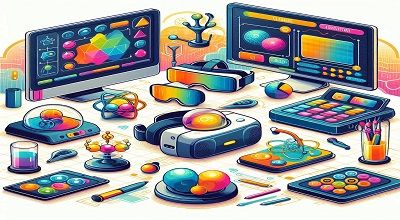Learning Assessment Tools For Science
Learning Assessment Tools For Science involves evaluating students’ understanding of scientific concepts, their ability to apply scientific methods, and their critical thinking skills. There are various assessment tools and strategies you can use in science education. Here are some commonly used ones:
Written Assessments
- Tests and Quizzes: Traditional tests and quizzes can assess students’ knowledge of scientific facts and concepts.
- Short Answer and Essay Questions: These allow students to demonstrate their understanding in a more detailed manner.
Lab Reports
- Experimental Design and Analysis: Assess students’ ability to design experiments, collect data, and analyze results.
- Conclusion and Reflection: Evaluate students’ understanding of the scientific method and their ability to draw conclusions from their experiments.
Projects
- Research Projects: Have students research a scientific topic, write a report, and present their findings.
- Hands-On Projects: Create hands-on projects that allow students to apply scientific principles in a practical way.
Presentations
- Oral Presentations: Assess students’ communication skills by having them present scientific concepts to the class.
- Poster Presentations: Create poster sessions where students visually present their scientific projects or research.
Concept Maps
- Have students create concept maps to illustrate their understanding of the relationships between different scientific concepts.
Interactive Assessments
- Online Quizzes: Use online platforms to create interactive quizzes that may include multimedia elements.
- Simulations: Utilize interactive simulations that allow students to explore and experiment with scientific concepts.
Peer Assessment
- Peer Review of Projects: Have students review and provide feedback on each other’s projects or reports.
- Group Work Assessment: Evaluate how well students collaborate and contribute within a group setting.
Performance Assessments
- Demonstrations and Experiments: Assess students’ ability to perform experiments and demonstrate scientific principles.
- Problem-Solving Tasks: Create real-world problems that require students to apply scientific knowledge to find solutions.
Formative Assessments
- Exit Tickets: Quick assessments at the end of a lesson to gauge student understanding.
- Concept Checks: Check for understanding during a lesson with brief quizzes or discussions.
Portfolios
- Compilation of Work: Have students maintain a portfolio that includes samples of their best work throughout the course.
Conclusion
When choosing assessment tools, consider the learning objectives, the nature of the content, and the diverse ways in which students learn. A combination of different assessment methods provides a more comprehensive understanding of students’ grasp of scientific concepts and skills.
